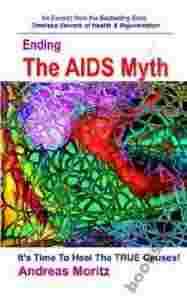|
Despite common belief, there is no scientific
evidence to this day that AIDS is a contagious disease.
The current AIDS theory falls short in predicting the
kind of AIDS disease an infected person may be
manifesting, and there is no accurate system to
determine how long it will take for the disease to
develop. In addition, the current HIV/AIDS theory
contains no reliable information that can help identify
those who are at risk of developing AIDS. On the other
hand, published research actually proves that HIV only
extremely rarely spreads heterosexually and cannot be
responsible for an epidemic that involves millions of
AIDS victims around the world. Furthermore, it is an
established fact that the retrovirus HIV, which is
composed of human gene fragments, is incapable of
destroying human cells. However, cell destruction is the
main characteristic of every AIDS disease. Even the
principal discoverer of HIV, Luc Montagnier, no longer
believes that HIV is solely responsible for causing
AIDS. In fact, he showed that HIV alone could not cause
AIDS. There is increasing evidence that AIDS may be a
toxicity syndrome or metabolic disorder that is caused
by immunity risk factors, including heroin, sex drugs,
antibiotics, commonly prescribed AIDS drugs, rectal
intercourse, starvation, malnutrition and dehydration.
Dozens of prominent scientists working at the forefront
of the AIDS research are now openly questioning the
virus hypothesis of AIDS. Find out why! Ending the AIDS
Myth also shows you what really causes the shutdown of
the immune system and what needs to be done to avoid
it!
|
|

